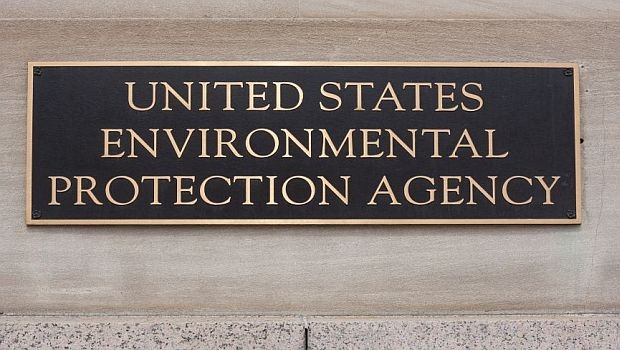EPA’s proposal would burden the dietary supplement industry and is contrary to federal law delineating supplements from drugs.

A proposed pharmaceutical hazardous waste regulation would burden the dietary supplement industry and should be changed, trade associations argued in comments filed with the U.S. Environmental Protection Agency (EPA).
EPA’s proposal violates the distinction that Congress created between food and pharmaceuticals and would increase costs, which would be passed on to consumers who take supplements, according to the trade groups.
“The inclusion of dietary supplements in this rule represents a clear infringement of the federal statute governing dietary supplements, a complete disregard for Congressional intent, and an unfair targeting of the dietary supplement industry," said Daniel Fabricant, Ph.D., executive director and CEO of the Natural Products Association, in a Dec. 29, 2015, statement. “This amounts to nothing more than government overreach and more red tape for healthcare facilities, retailers, and small businesses should this rule be allowed to move forward as written."
The Council for Responsible Nutrition (CRN) supported changing EPA’s proposal to align with current processes that are used to manage unsold or unused dietary supplements. The organization also supported recommended changes to the proposed rule that were outlined by the Consumer Healthcare Products Association (CHPA).
“CRN encourages EPA to develop regulations for the management of hazardous waste dietary supplements that are appropriate, efficient and practicable, but are not unduly burdensome for the over 150 million Americans that use these important products to maintain their health," Duffy MacKay, CRN’s senior vice president of scientific and regulatory affairs, wrote in Dec. 21, 2015, comments filed with EPA.
Dietary supplements and over-the-counter medicines (OTCs) should not be treated as hazardous wastes under the Resource Conservation and Recovery Act (RCRA), according to CHPA. In the event EPA decides to treat the products as hazardous waste, the trade association urged EPA to make certain changes. CHPA argued many products are donated or otherwise repurposed, which would exclude them from the definition of “wastes".
“It is illogical, burdensome, costly and wasteful to ever classify products that consumers eat every day as RCRA hazardous waste when discarded," Carolyn Herrmann, CHPA’s associate general counsel, declared in written comments. “However, if any OTCs and dietary supplements are potentially subject to RCRA, these consumer products should not be considered wastes when transported to a reverse logistics provider for further processing."
In an email to INSIDER, Herrmann said there are currently two ingredients in dietary supplements that are listed as hazardous and must be treated accordingly: selenium and chromium.
EPA said its proposal reflects an effort to improve the disposal and management of hazardous waste pharmaceuticals. The agency does not presently have specific regulations that focus on the management of hazardous wastes from pharmacies and other healthcare-related facilities, according to EPA’s proposed regulation.
While certain pharmaceuticals, when they are discarded, have been treated as hazardous waste under the RCRA, facilities have encountered difficulties complying with the regulations for various reasons, EPA explained. For instance, EPA cited challenges in determining which items in a healthcare facility are hazardous waste when they are disposed.
If finalized, EPA’s revised regulation would apply to healthcare facilities, so-called pharmaceutical reverse distributors, and owners or operators of treatment, storage and disposal facilities that manage hazardous waste pharmaceuticals.
EPA estimated its draft regulation would result in an annual cost of US$37 million, but would save $24.3 million. Another benefit of the rule, EPA projected, includes diverting roughly 6,440 tons annually of pharmaceutical waste from sewers to alternate disposal because healthcare facilities will be prohibited from flushing substances down the sink and toilet.
That still begs the question: what is the correlation between pharmaceutical waste and dietary supplements? EPA included dietary supplements as part of its definition of “pharmaceutical" in the proposed regulation. Its previous definition of “pharmaceutical" in a December 2008 Pharmaceutical Universal Waste proposal wasn’t so expansive, and the agency acknowledged FDA does not treat dietary supplements as drugs. However, EPA indicated its proposal is responsive to comments from stakeholders who “indicated a preference for managing more items under the new standards than trying to determine how to apply the existing RCRA framework to pharmaceutical related items."
“EPA’s decision to include dietary supplements under this rulemaking’s proposed definition of hazardous waste pharmaceutical reflects our interest in promoting a management scheme for all types of pharmaceuticals, and is based upon our understanding that dietary supplements are commonly found in various healthcare settings because they are recommended or prescribed by healthcare providers to patients," the agency explained in its proposed regulation. “Further, retail pharmacies routinely sell vitamins and other medicinal minerals and supplements."
Fabricant of NPA countered in written comments that “Congress never intended" to regulate dietary supplements as pharmaceutical drugs. He also questioned EPA’s rationale for including dietary supplements—a category of food—within the scope of the regulation.
“If EPA is truly concerned about the environmental impact from dietary supplements, then we need to ask why EPA has provided no discussion of other foods with even higher levels of nutrients (e.g. fortified cereals and milk) that will make their way to waste accumulation sites," Fabricant said in his written comments. “For instance, billions of gallons of milk each year are fortified with vitamin D, the same ingredient in dietary supplements. Vitamin D from discarded milk would be a greater source of environmental exposure as out-of-date or spoiled milk is typically poured down the kitchen sink."
On Sept. 25, 2015, EPA published its proposal in the Federal Register. The comment period closed on December 24, 2015. In an emailed statement to INSIDER, EPA said it will review “NPA’s comments along with others received to develop the final rule."
About the Author(s)
You May Also Like






.png?width=800&auto=webp&quality=80&disable=upscale)